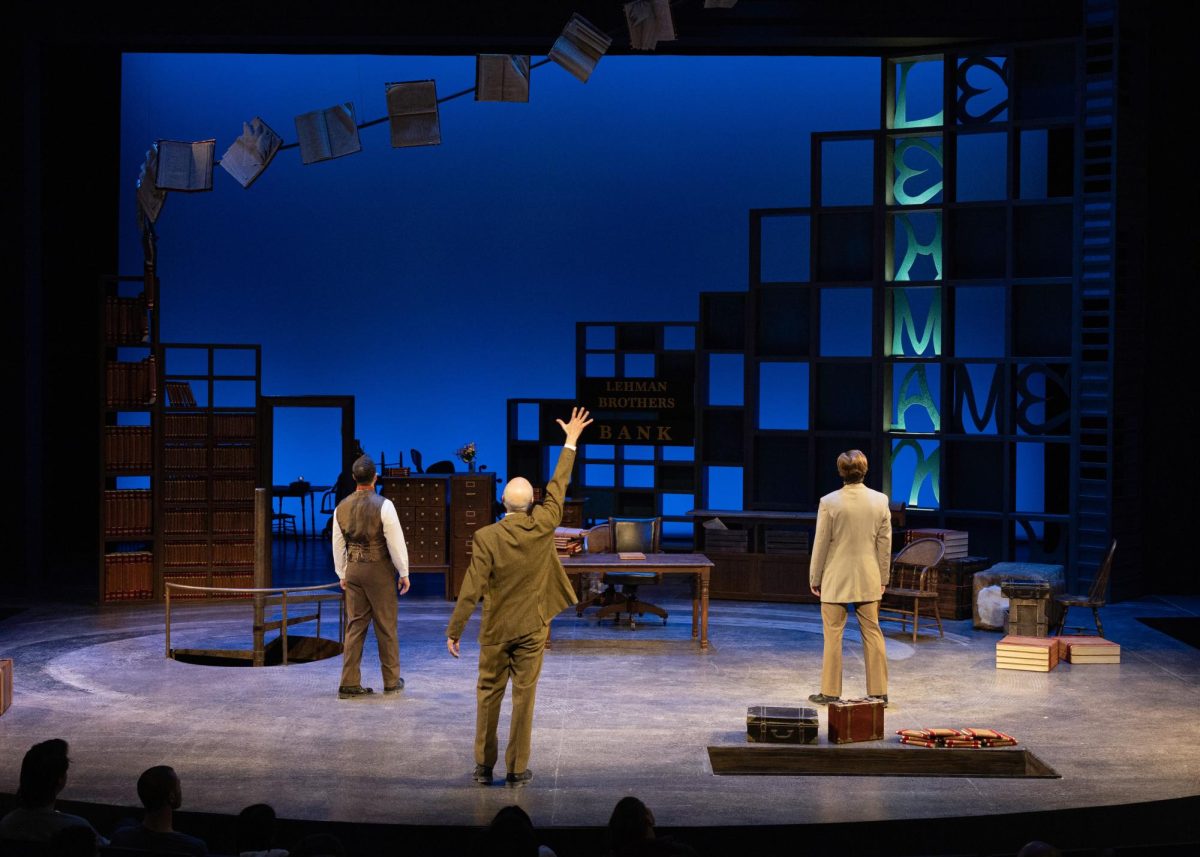The one-woman play, starring award-winning South Asian queer actress, Fawzia Mirza, “Me, My Mom and Sharmila,” is an experience.
During a performance of the play at the University of Utah on April 6, Mirza chronicled milestones throughout her life by discussing events and secrets that people don’t often share. It created a monologue that was very easy to relate to and drew each member of the audience into her past to experience every memory with her.
Mirza first tells the story of her love for Sharmila Tagore, a famous Bollywood actress, followed by a brief history of Bollywood and British colonization. This gives audiences an understanding of these systems as well as the ways Southern Asian culture has been influenced by other countries. The audience is told Tagore was always composed in interviews, like the perfect British lady. She never compromised herself or her religion (she later converted to Islam) and Mirza admired this quality.
“Me, My Mom and Sharmila” is meant to be a comedy and through satire and Mirza’s witty sense of humor, it is. Although she tells stories during its course that can make several audience members wipe their eyes, the overall story is one of acceptance and finding happiness.
Blending stories of her first kiss, her father’s health issues, her mother’s reaction to the first place she lived in Chicago and their falling out, Mirza fearlessly laid her personal life bare to connect with her audience. She explained that, “Muslims are like everybody, perfectly imperfect,” as she says at one point.
The seamless connection among her stories, the music she uses to draw the audience into the memory with her and her love of Sharmila Tagore is honest and adds sincerity to every word Mirza says.
The reality and emotion behind every word took a monologue and turned it into a play, which made the advertising both fun and accurate.
There was never a moment in the play where it felt like Mirza was just telling a story or had rehearsed and performed these very same words before, even though she had. She was funny, empowering and interacted with the audience without leaving the stage.
After the play, she stayed to answer questions. Though several questions were serious, Mirza answered all of them with a smile and was quick to add a joke here and there to keep everything fun.
As a response to why she decided to do comedy, she explained that, “Comedy has been a survival mechanism since I could remember, and it really helped when I was the kid with the weird smelling lunch.”
But it goes deeper than that for her as well. For Mirza, “Laughter can make a space to connect and I use it as a tool to break down stereotypes,” she said. A goal accomplished by her one-woman play, in which the audience is left thinking about the person behind the sexuality, religion or race and realizing that each person is different, but also inherently the same.
Samah Safiullah, one of the University of Utah students responsible for organizing events for Asian-American Awareness week, said she brought Mirza to the U because she “felt that this show really embraces collective liberation,” which was the goal for the week. After seeing it at Westminster, the personal connection she felt with Mirza led her to organize the play as the finale for the events of the week. She was moved by the play and wanted “queer people of color” to make similar connections with Mirza’s story.
For more information on Mirza, you can visit her website, at fawziamirza.com.















